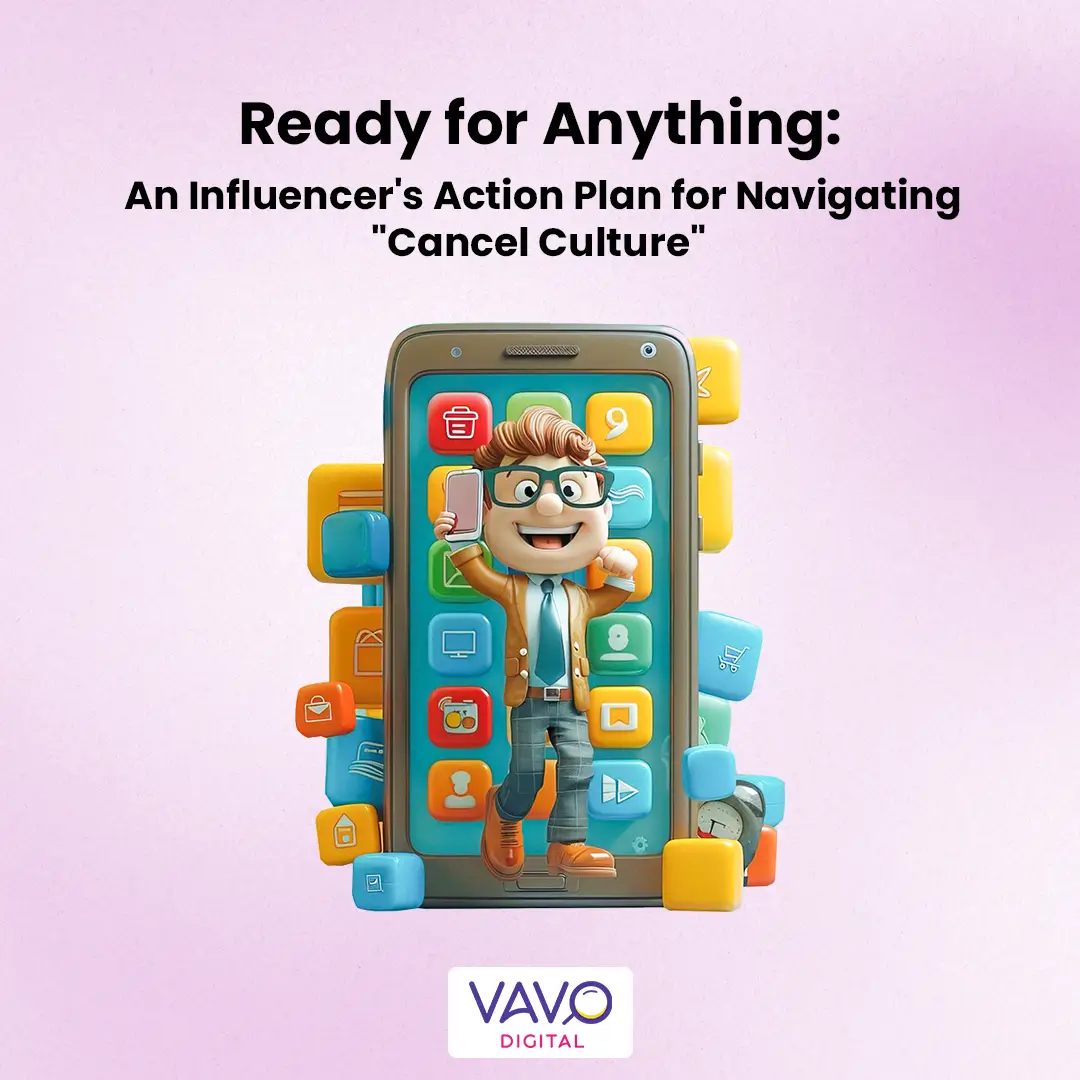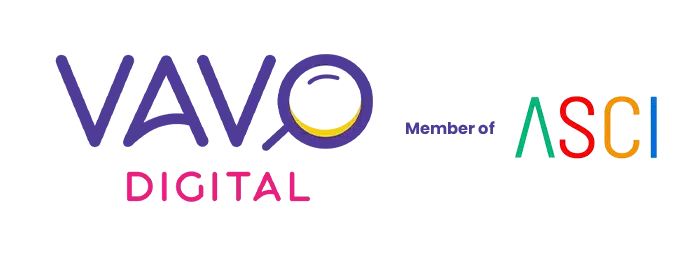
Ready for Anything: An Influencer’s Action Plan for Navigating “Cancel Culture”
In the dynamic and often unforgiving landscape of social media, influencers and content creators face a unique challenge: the ever-present threat of being “cancelled.” This phenomenon, where public figures face widespread online backlash and potential career repercussions for perceived missteps, has become a significant concern. For those whose livelihoods depend on their online presence and public image, having a well-defined action plan in place is no longer a luxury but a necessity. This report outlines a comprehensive strategy that influencers and their agencies can implement to prepare for and manage a cancellation crisis, ensuring they are ready to navigate these turbulent waters.
Decoding the Digital Guillotine: Understanding “Cancel Culture” in the Influencer Sphere
Cancel culture refers to the public boycott of individuals, brands, or artistic works over offensive actions or statements, often amplified by social media. While it began as a push for accountability, critics argue it can resemble vigilante justice, offering little room for redemption. The consequences of being “canceled” can be severe, including loss of platform, financial stability, and long-term employability.
Influencers face cancellation for various reasons, including inauthenticity, offensive behavior, lack of accountability, and outdated opinions. Controversial incidents—such as recently India’s Got Latent issue, where multiple creators faced backlash due to some inappropriate joke by one of the judges, which was not harmful but was taken out of context.
As audiences expect influencers to align with their values, missteps—intentional or not—can lead to public abandonment, making awareness and accountability crucial for online creators.
Table 1: Common Reasons and Triggers for Influencer Cancellation
| Category | Specific Reason/Trigger |
| Authenticity | Inauthenticity, Deceptive Marketing |
| Behavior | Inappropriate Behavior/Comments (offensive, insensitive) |
| Accountability | Lack of Accountability, Denial of Wrongdoing |
| Values | Outdated/Controversial Opinions, Value Misalignment |
| Ethics | Unethical Product Endorsements, Non-Disclosure |
| Personal Life | Personal Controversies/Scandals, Lack of Boundaries |
Building an Armor: Proactive Measures to Minimize Cancellation Risks
To reduce the risk of cancellation, influencers can take proactive steps:
- Content Review Process – Establishing a structured review system ensures brand consistency, compliance, and minimizes controversial content. Draft approvBy prioritizing careful content creation, clear ethical standards, and authenticity, influencers can create a buffer against potential backlash.
Weathering the Storm: Crafting a Robust Crisis Communication Plan
Even with proactive measures in place, influencers and their agencies must be prepared to navigate a cancellation crisis. Crafting a robust crisis communication plan is essential for effectively managing such situations. This plan should begin by identifying keals, clear feedback, and formal sign-offs help align content with brand values.
- Clear Community Guidelines – Influencers should follow FTC disclosure rules and create personal guidelines that foster a respectful online environment. These should define acceptable behavior, prohibited content, and enforcement measures, regularly updated with audience input.
- Authentic & Transparent Communication – Building trust through genuine content, clear sponsorship disclosures, and open dialogue strengthens audience relationships. A loyal and engaged following provides support during controversies.
y personnel and defining their roles within a crisis communication team . This team typically includes PR professionals, legal advisors, executives, and social media experts, with clearly defined responsibilities for each member . Designating a spokesperson who is directly responsible to the audience is also crucial . A well-defined team ensures a coordinated and efficient response, preventing confusion and delays during a critical time. Knowing who is responsible for each aspect of the communication strategy ensures that tasks are handled efficiently and that the messaging remains consistent.
Establishing clear communication protocols and workflows is another vital component of the crisis plan . This involves outlining how and when to communicate with the audience, stakeholders, and media. Implementing monitoring systems to detect potential crises early, establishing rapid response teams to coordinate efforts, and setting up clear escalation procedures are all part of this process . Predefined communication protocols ensure a swift and consistent response, which is crucial in managing the narrative and minimizing potential damage. Having established protocols for communication – including who to contact, which channels to use, and the approval process for messages – allows for a faster and more effective response when a crisis hits.
Preparing template responses for anticipated crisis scenarios can significantly streamline the response process. Having pre-approved communication templates for various potential situations allows for quick customization and ensures that key messages are communicated effectively and consistently . These templates can address common triggers like offensive comments, misleading promotions, or personal scandals, providing a solid starting point for crafting a tailored response. This saves valuable time during a high-pressure situation and helps ensure that essential information and key messages are included in the initial communication.
The Agency as Your Shield: How Agencies Can Support During a Cancellation Crisis
Influencer marketing agencies play a critical role in supporting their clients during a cancellation crisis. The strategic role of public relations (PR) within an agency is paramount in these situations . PR professionals possess expertise in developing transparent and affirming messaging, managing public perception, and controlling communication channels to mitigate damage . They can leverage their networks to identify appropriate influencers for partnerships, build strong relationships, and track the performance of campaigns, all of which contribute to a more resilient brand . During a crisis, PR teams can help craft empathetic and strategic messages that address public concerns, navigate media inquiries, and work to maintain or rebuild public trust.
The critical importance of legal counsel and guidance cannot be overstated . Legal advisors provide essential guidance on legal obligations, help mitigate risks, and ensure compliance with contracts and relevant regulations, such as FTC guidelines . They also play a crucial role in advising on public statements to avoid potential legal pitfalls like defamation . Legal counsel ensures that all communication and actions taken during a crisis are legally sound, protecting the influencer from potential lawsuits or further complications. They can review contracts, advise on the legal ramifications of various actions, and help navigate complex issues that may arise.
Leveraging audience engagement specialists within an agency provides another layer of crucial support . These specialists focus on real-time monitoring of social media and online discourse, identifying potential issues in their early stages, and tracking overall brand sentiment . They play a vital role in engaging with the audience, addressing concerns directly, and helping to rebuild trust that may have been damaged . This proactive approach to monitoring and engagement allows for timely intervention, potentially preventing the escalation of negative sentiment and fostering a sense of community and responsiveness.
Responding with Resilience: Best Practices for Influencers Facing Cancellation
When facing a cancellation attempt, influencers should respond swiftly and empathetically. A timely acknowledgment, ideally within a day or two, signals awareness and a genuine concern for those affected. Delaying a response may be perceived as indifference or a lack of accountability, which can escalate negative sentiment. If the criticism holds merit, taking responsibility and offering a sincere apology is crucial. A well-crafted apology should be direct, free from deflection, and demonstrate an understanding of the issue. Half-hearted or insincere apologies can further damage an influencer’s reputation, whereas a genuine one can help rebuild trust.
Maintaining open and honest communication throughout the crisis is equally important. Transparency about what happened, what is being done to address the situation, and how lessons are being learned reassures the audience. Providing regular updates and engaging with concerns in a straightforward manner can counter misinformation and demonstrate accountability. By responding promptly, owning mistakes when necessary, and fostering transparent dialogue, influencers can navigate crises more effectively and work towards restoring their reputation.
Table 2: Best Practices for Responding to a Cancellation Attempt
| Strategy | Actionable Steps |
| Acknowledgment | Respond quickly (within 1-2 days), show public concern and awareness |
| Responsibility | Assess validity of criticism, apologize sincerely if wrong, take full responsibility |
| Communication | Maintain open, honest, clear communication; provide updates, address concerns |
The Long Road Back: Strategies for Reputation Recovery After Cancellation
Recovering from a cancellation attempt is a marathon, not a sprint. Demonstrating tangible changed behavior and accountability over time is crucial for long-term reputation repair . This involves showing genuine effort in rectifying the situation, which might include acknowledging mistakes publicly, taking time away from the internet for reflection or education, and consistently demonstrating changed behavior in future content and interactions . Audiences are more likely to forgive and support influencers who show sincere remorse and make concrete efforts to learn and grow from their mistakes .
Strategically refocusing content pillars and brand messaging may be necessary to align with changed values or a renewed brand identity . Reviewing existing content pillars and potentially adopting new ones that reflect a commitment to growth and learning can signal a new direction for the influencer’s brand . This ensures consistency in messaging and resonates with an audience that may have evolved their expectations. Adjusting the content strategy demonstrates a willingness to adapt and a commitment to evolving in a positive direction.
Navigating the Minefield: Key Factors and Considerations for Influencers and Agencies
When navigating a potential cancellation, both influencers and their agencies must consider several key factors. Thoroughly understanding the platform policies and guidelines of each social media channel used is fundamental. Adherence to these rules is crucial for avoiding violations that could lead to account suspension or further negative attention, potentially exacerbating a cancellation attempt.
Accurately assessing the severity and scope of the situation is also essential. Understanding the extent of the online backlash, identifying the primary drivers of negative sentiment, and evaluating the potential long-term impact are crucial steps in determining the most appropriate response. A careful assessment allows for a tailored and proportionate reaction, preventing both overreactions and underreactions that could worsen the crisis.
Carefully gauging public sentiment and online discourse is another critical consideration . Continuously monitoring social media conversations, tracking brand mentions, and analyzing the overall public sentiment provide valuable insights into how the situation is being perceived. This information is essential for crafting effective and resonant communication strategies and for understanding when and how to shift the narrative towards recovery.
Conclusion:
In conclusion, the threat of being “cancelled” is a significant reality for influencers and content creators. However, by implementing a proactive action plan, they can significantly mitigate the risks and effectively manage a crisis should it occur. This plan encompasses several key steps: proactively building an armor through rigorous content review, clear community guidelines, and transparent communication; crafting a robust crisis communication plan with defined personnel, protocols, and template responses; leveraging the expertise of agencies in public relations, legal counsel, and audience engagement; responding to a cancellation attempt with timely acknowledgment, responsibility, and open communication; and focusing on long-term reputation recovery through demonstrable changed behavior, positive actions, and a strategic refocus of content. Preparedness, authenticity, and resilience are the cornerstones of navigating the challenges of cancel culture. As the landscape of influencer marketing continues to evolve, a strategic and well-rehearsed crisis management plan will remain an indispensable tool for safeguarding careers and maintaining public trust.




